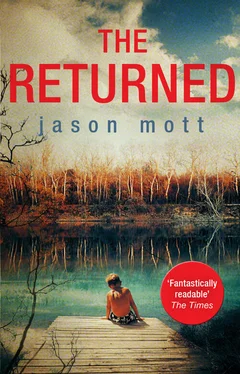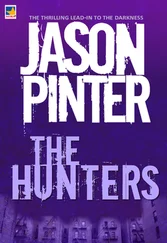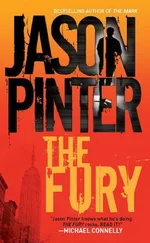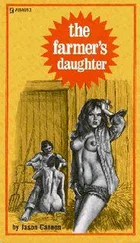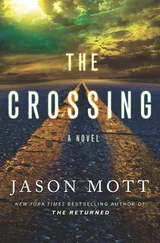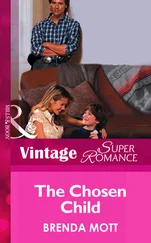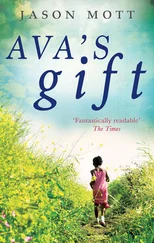“Jacob was time out of sync, time more perfect than it had been. He was life the way it was supposed to be all those years ago. That’s what all the Returned were.”
Harold and Lucille Hargrave’s lives have been both joyful and sorrowful in the decades since their only son, Jacob, died tragically at his eighth birthday party in 1966. In their old age they’ve settled comfortably into life without him, their wounds tempered through the grace of time.... Until one day Jacob mysteriously appears on their doorstep—flesh and blood, their sweet, precocious child, still eight years old.
All over the world people’s loved ones are returning from beyond. No one knows how or why this is happening, whether it’s a miracle or a sign of the end. Not even Harold and Lucille can agree on whether the boy is real or a wondrous imitation, but one thing they know for sure: he’s their son. As chaos erupts around the globe, the newly reunited Hargrave family finds itself at the center of a community on the brink of collapse, forced to navigate a mysterious new reality and a conflict that threatens to unravel the very meaning of what it is to be human.
With spare, elegant prose and searing emotional depth, award-winning poet Jason Mott explores timeless questions of faith and morality, love and responsibility. A spellbinding and stunning debut, The Returned is an unforgettable story that marks the arrival of an important new voice in contemporary fiction.
The Returned
Jason Mott
www.mirabooks.co.uk
For my mother and father
Contents
Chapter One
Kamui Yamamoto
Chapter Two
Lewis and Suzanne Holt
Chapter Three
Angela Johnson
Chapter Four
Jean Rideau
Chapter Five
Elizabeth Pinch
Chapter Six
Gou Jun Pei
Chapter Seven
Nico Sutil. Erik Bellof. Timo Heidfeld.
Chapter Eight
Jeff Edgeson
Chapter Nine
Tatiana Rusesa
Chapter Ten
Alicia Hulme
Chapter Eleven
Bobby Wiles
Chapter Twelve
Samuel Daniels
Chapter Thirteen
John Hamilton
Chapter Fourteen
Jim Wilson
Chapter Fifteen
Nathaniel Schumacher
Chapter Sixteen
Connie Wilson
Chapter Seventeen
Chris Davis
Chapter Eighteen
Patricia Bellamy
Chapter Nineteen
Jacob Hargrave
Epilogue
Author’s Note
Acknowledgments
Extract
Endpage
Copyright
One
HAROLD OPENED THE door that day to find a dark-skinned man in a well-cut suit smiling at him. At first he thought of reaching for his shotgun, but then he remembered that Lucille had made him sell it years ago on account of an incident involving a traveling preacher and an argument having to do with hunting dogs.
“Can I help you?” Harold said, squinting in the sunlight—light which only made the dark-skinned man in the suit look darker.
“Mr. Hargrave?” the man said.
“I suppose,” Harold replied.
“Who is it, Harold?” Lucille called. She was in the living room being vexed by the television. The news announcer was talking about Edmund Blithe, the first of the Returned, and how his life had changed now that he was alive again.
“Better the second time around?” the announcer on the television asked, speaking directly into the camera, laying the burden of answering squarely on the shoulders of his viewers.
The wind rustled through the oak tree in the yard near the house, but the sun was low enough that it drove horizontally beneath the branches and into Harold’s eyes. He held a hand over his eyes like a visor, but still, the dark-skinned man and the boy were little more than silhouettes plastered against a green-and-blue backdrop of pine trees beyond the open yard and cloudless sky out past the trees. The man was thin, but square-framed in his manicured suit. The boy was small for what Harold estimated to be about the age of eight or nine.
Harold blinked. His eyes adjusted more.
“Who is it, Harold?” Lucille called a second time, after realizing that no reply had come to her first inquiry.
Harold only stood in the doorway, blinking like a hazard light, looking down at the boy, who consumed more and more of his attention. Synapses kicked on in the recesses of his brain. They crackled to life and told him who the boy was standing next to the dark-skinned stranger. But Harold was sure his brain was wrong. He made his mind to do the math again, but it still came up with the same answer.
In the living room the television camera cut away to a cluster of waving fists and yelling mouths, people holding signs and shouting, then soldiers with guns standing statuesque as only men laden with authority and ammunition can. In the center was the small semidetached house of Edmund Blithe, the curtains drawn. That he was somewhere inside was all that was known.
Lucille shook her head. “Can you imagine it?” she said. Then: “Who is it at the door, Harold?”
Harold stood in the doorway taking in the sight of the boy: short, pale, freckled, with a shaggy mop of brown hair. He wore an old-style T-shirt, a pair of jeans and a great look of relief in his eyes—eyes that were not still and frozen, but trembling with life and rimmed with tears.
“What has four legs and goes ‘Boooo’?” the boy asked in a shaky voice.
Harold cleared his throat—not certain just then of even that. “I don’t know,” he said.
“A cow with a cold!”
Then the child had the old man by the waist, sobbing, “Daddy! Daddy!” before Harold could confirm or deny. Harold fell against the door frame—very nearly bowled over—and patted the child’s head out of some long-dormant paternal instinct. “Shush,” he whispered. “Shush.”
“Harold?” Lucille called, finally looking away from the television, certain that some terror had darkened her door. “Harold, what’s going on? Who is it?”
Harold licked his lips. “It’s...it’s...”
He wanted to say “Joseph.”
“It’s Jacob,” he said, finally.
Thankfully for Lucille, the couch was there to catch her when she fainted.
* * *
Jacob William Hargrave died on August 15, 1966. On his eighth birthday, in fact. In the years that followed, townsfolk would talk about his death in the late hours of the night when they could not sleep. They would roll over to wake their spouses and begin whispered conversations about the uncertainty of the world and how blessings needed to be counted. Sometimes they would rise together from the bed to stand in the doorway of their children’s bedroom to watch them sleep and to ponder silently on the nature of a God that would take a child so soon from this world. They were Southerners in a small town, after all: How could such a tragedy not lead them to God?
After Jacob’s death, his mother, Lucille, would say that she’d known something terrible was going to happen that day on account of what had happened just the night before.
That night Lucille dreamed of her teeth falling out. Something her mother had told her long ago was an omen of death.
All throughout Jacob’s birthday party Lucille had made a point to keep an eye on not only her son and the other children, but on all the other guests, as well. She flitted about like a nervous sparrow, asking how everyone was doing and if they’d had enough to eat and commenting on how much they’d slimmed down since last time she’d seen them or on how tall their children had gotten and, now and again, how beautiful the weather was. The sun was everywhere and everything was green that day.
Her unease made her a wonderful hostess. No child went unfed. No guest found themselves lacking conversation. She’d even managed to talk Mary Green into singing for them later in the evening. The woman had a voice silkier than sugar, and Jacob, if he was old enough to have a crush on someone, had a thing for her, something that Mary’s husband, Fred, often ribbed the boy about. It was a good day, that day. A good day, until Jacob disappeared.
Читать дальше
